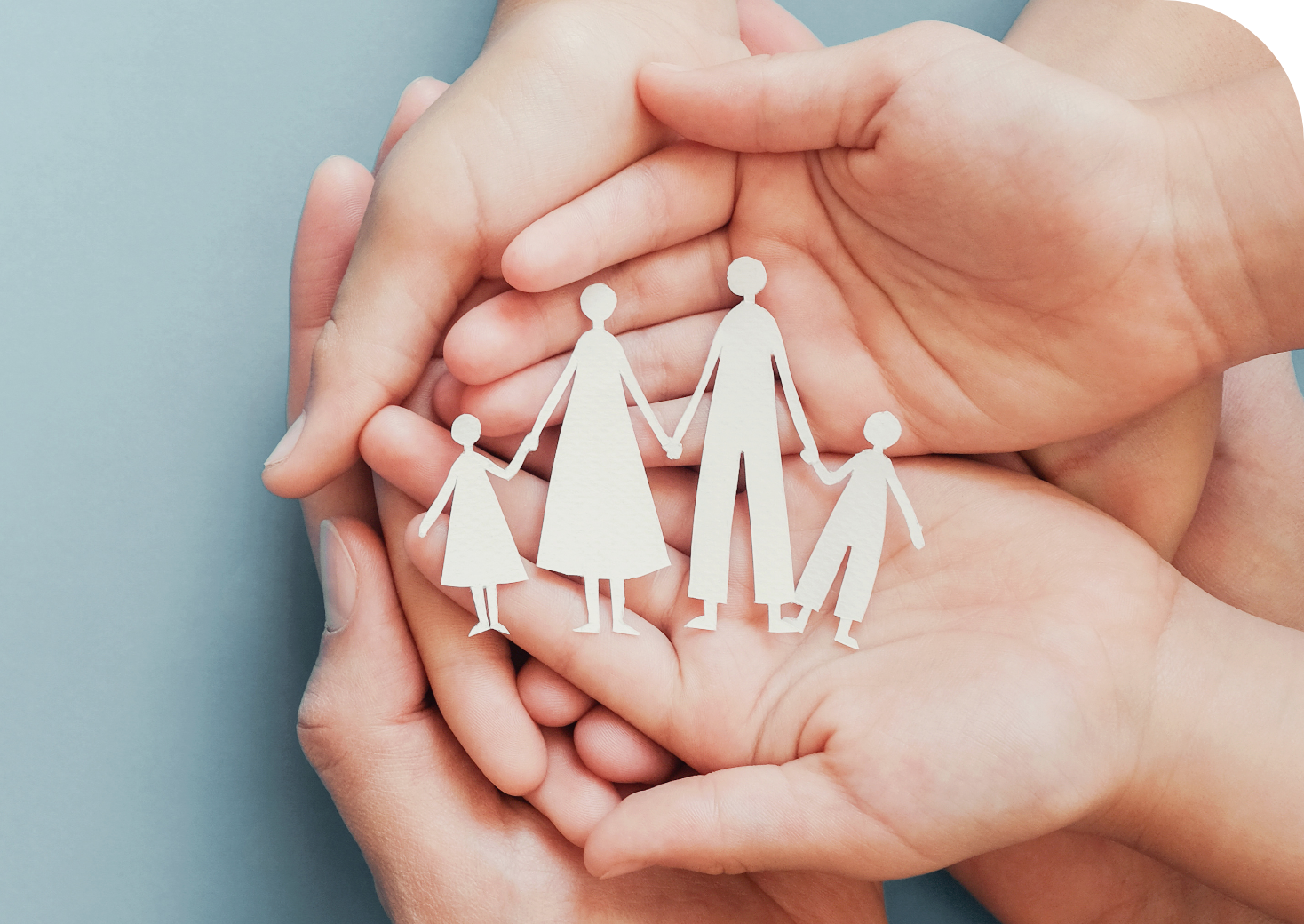We respect the human rights and diversity
of all of our stakeholders, and will contribute
to the creation of a sustainable society.
- We will achieve respect for the human rights and diversity of all stakeholders and improve the well-being of employees in order to realize a society in which all people can fully demonstrate their capabilities.
- We seek to partner with communities in order to realize a sustainable society.
usage ratio (men)
Examples of recognized risks and opportunities
Risks
- Decline in productivity due to neglect of employee health and safety
- Increase in procurement risks due to human rights issues in the supply chain
- Outflow of human resources, adverse effects on employment, and decline in trust from stakeholders due to lagging human rights and diversity initiatives
Opportunities
- Strengthening of human resource capabilities and global response capabilities through respect for diversity
- Securing of human resources through the strengthening of safety and health and improvement of engagement
- Innovation and technological improvements achieved through diversity
Main actions
- Respect for human rights in the supply chain through compliance with human rights policies
- External communication with consideration for diversity utilizing external communication guidelines, etc.
- Instillation of DE&I awareness within the company and enhancement of the level of diversification of human resources
- Improvement of employee engagement
- Increased utilization rate of systems related to work-life balance
- 100% usage ratio for childcare leave by men and women
- Human resource development through the provision of learning opportunities, etc.
- Maintenance and improvement of mental and physical health through the enhancement of benefits programs and seminars
- Reduction of labor burden through the utilization of robots and other digital technologies
- Reduction of occurrences of work environment troubles
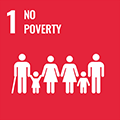


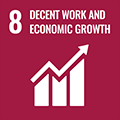
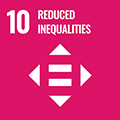
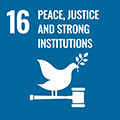
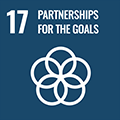
Targets for FY 2030
*Compliance with human rights policy, conduct human rights due diligence(DD), and creation of grievance mechanism
Managers
(by FY 2026)
*The target for FY2030 was changed from 10% to 20%, and the interim target was changed from "6% or more in FY24" to "10% or more in FY26".
usage ratio (men)
consolidated subsidiaries: promote certification of Health & Productivity Management Outstanding Organization
(continued)
(by FY 2028)
human resource development
yen/person/year
Topics
Initiatives Related to Respecting Human Rights
We have formulated the Morinaga Milk Group Human Rights Policy, which was approved by the Board of Directors, based on the Guiding Principles on Business and Human Rights of the United Nations and in respect to various international codes of conducts regarding human rights, such as Universal Declaration of Human Rights and United Nations Global Compact, to promote initiatives related to respecting human rights.The Director on the Board in charge of human resources at Morinaga Milk Industry Co., Ltd. is responsible for the implementation of the Morinaga Milk Group Human Rights Policy and supervises its implementation.
Morinaga Milk Group Human Rights Policy
In April 2022, we established a Human Rights Subcommittee within the Sustainability Committee and commenced human rights due diligence activities, with the aim of identifying any risks of human rights violations relating to the Group’s business activities, so that we can take steps to prevent and mitigate such risks. The Board of Directors of Morinaga Milk receives regular reports on these activities and oversees the processes and effectiveness of measures.
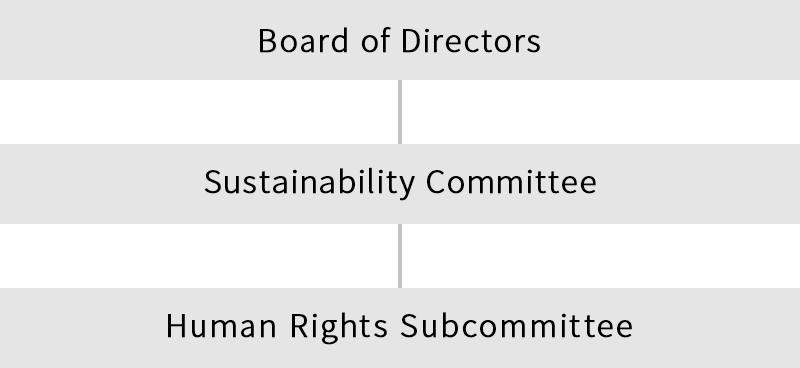
Initiatives of Human Rights Due Diligence
To promote initiatives related to respect for human rights that have been specified in the Human Rights Policy since FY 2022, Morinaga Milk Group is building a system for human rights due diligence activities with the aim of identifying any risks of human rights violations associated with the Group’s business activities and taking measures to prevent and mitigate such risks. The system been incorporated as a necessary process for business and is being continuously utilized.
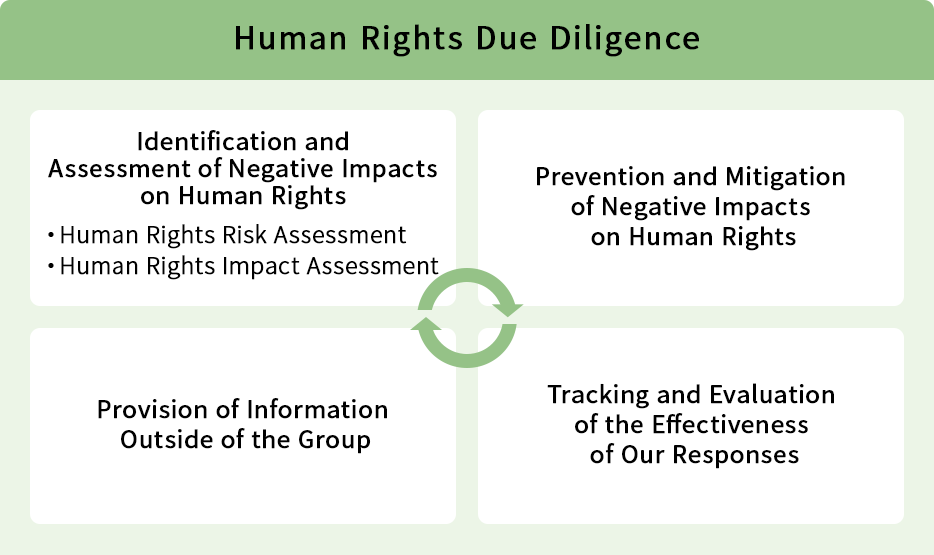
Discovering and Identifying Human Rights Risks (Human Rights Risk Assessment)
The Chairman of the Human Rights Subcommittee and representatives from related departments of the Morinaga Milk Group (14 departments which include the Human Resource Department, Sustainability Promotion Department, Corporate Strategic Planning Department, Manufacturing Department, Overseas Business Strategic Planning Department, Dairy Farm Services Department, Procurement Department, etc.) participated in a lecture given by an outside expert on global trends in business and human rights, which was followed by a discussion on human rights issues in our business activities.
Through research analysis and evaluation by outside experts based on this discussion, we identified potential human rights risks that the Morinaga Milk Group should prioritize.
Potential human rights risks were assessed by integrating the country risk assessment and the business risk assessment.*
Scope of Human Rights Risk Assessment
- Countries: The eight countries where the Morinaga Milk Group has business sites
(Japan, United States, Germany, Singapore, China, Vietnam, Indonesia, and Pakistan) - Business: All Morinaga Milk Group businesses
- Human rights issues: The following 20 human rights indicators that are closely related to business among the human rights listed in various international codes of conducts were selected
Fair wages (living wage, equal pay), Working hours, Discriminatory practices, Occupational health and safety, Freedom of association and the right to collective bargaining,Forced labor, Child labor, Rights of young workers, Migrant workers’ rights, Modern-day slavery, Human trafficking, Land and residential rights,Security practices, Indigenous rights, Minority rights, Rights of sexual minorities, Women's rights, Right to privacy,Freedom of expression, and Access to remediation
Potential human rights risks identified
- Potential human rights risk 1: Complicity in human rights violations in the supply chain
- Potential human rights risk 2: Labor issues related to foreign workers in Japan
- Potential human rights risk 3: Labor issues related to workers at overseas sites
- Potential human rights risk 4: Labor issues related to logistics service workers
- Potential human rights risk 5: Discrimination and harassment among employees in the workplace
- Potential human rights risk 6: Infringement of consumer rights
* Country risks
Based on data from international risk analysis, research, and strategic forecasting organizations, we assessed risks to human rights by country and human rights indicator on a scale of 1 to 4.
* Business risks
For each country, the degree of impact on human rights risks was assessed based on business scale (sales and number of employees). For Japan, which has a large business scale, human rights risks were assessed based on employee breakdown data.
* Potential human rights risks
Through desktop surveys and in-house workshops, we assessed potential human rights risks based on country risk assessments and business risk assessments based on three axes: rights holders, human rights indicators, and value chain.
Human Rights Impact Assessment
Human rights impact assessments are conducted with the aim of promoting necessary corrective actions by assessing the presence or absence of actual human rights impacts on employees working at business sites and the degree of impact to visualize issues. We continuously conduct human rights impact assessments to address potential human rights risks that the Morinaga Milk Group should prioritize.
(1) Potential human rights risk: Labor issues related to foreign workers in Japan
In FY 2023, we conducted a human rights impact assessment at the Morinaga Milk Group's Furijiport Co., Ltd. Kumamoto Plant.
Human rights specialist Caux Round Table (CRT) conducted the impact assessment from the perspective of a third party, which involved interviewing a total of 20 employees working at Furijiport Co., Ltd. Kumamoto Plant—12 technical interns from overseas and eight temporary workers—as well as the Kumamoto Plant manager and the office manager. Members of Morinaga Milk's Human Resource Department and Sustainability Promotion Department also participated as observers.
The assessment also included verification of the working environment and living environment of the technical interns. The human rights impact assessment used the Dhaka Principles for Migration with Dignity to check conditions. The results are as follows.
- No serious human rights issues were found.
- It can be said that the Kumamoto Plant is a pioneering, good workplace that is implementing various initiatives for coexistence and co-prosperity with employees that are foreign nationals.
- A workplace has been created designed to provide opportunities for direct dialog between technical intern trainees and plant personnel, etc. Communication between Japanese employees and employees that are foreign nationals is smooth with a high level of satisfaction. This includes instructions on work procedures, explanations when defective products are found, and consultations.
In addition, recreational activities for trainees have also been well received. - Various creative efforts were made at the plant in cooperation with the supervisory and temporary staffing agencies to enable employees that are foreign nationals to work more smoothly.
- There were employees who did not know the evacuation route due to temporary employees always being replaced.
- As the workplace becomes multinational, it is necessary to engage in continuous dialog with employees.
・Related human rights issues
Fair wages, Working hours, Discriminatory practices, Occupational health and safety, Freedom of association and the right to collective bargaining, Forced labor, Migrant workers’ rights, Modern-day slavery, and Access to remediation
・Affected rights holders
Foreign workers of Japan-based Group companies and suppliers
・Actions taken to prevent/mitigate negative impact on human rights
- We have established a system to ensure that all employees can evacuate sites without problems in an emergency, such as creating evacuation routes for each workplace.
- We hold safety liaison meetings once every two months where we bring together companies that dispatch foreign workers to exchange opinions on various initiatives, including occupational safety.
We decided to work with the management body and dispatchers to create opportunities for dialogue, awareness, and improvement.
・Follow-up Evaluation of the Effectiveness of Our Responses (2024)
A follow-up evaluation was conducted on the items assessed in the 2023 impact assessment, confirming that improvements were successfully made without any issues.
- Regarding evacuation routes, efforts have been made to enhance recognition of emergency exits and evacuation paths, ensuring that assigned personnel know immediately how to evacuate the workplace.
- In 2023, a new dormitory for technical intern trainees was established so that the kitchen area and shower rooms will be less crowded.
- Explanations about the opinion boxes installed on-site and the helpline are thoroughly provided when a new employee enters the Company. Additionally, “Communication Committee” meetings are held once a month with a staffing agency.
(2) Potential human rights risks: Complicity in human rights violations in the supply chain
In FY 2024, we conducted a human rights impact assessment at a Thailand-based aloe production company and at local aloe farms that supply aloe to Morinaga Milk Group.
At the aloe production company, employees participated in pre-assessment surveys and interviews, followed by a closing meeting with management. Interviews were also conducted with the owners and employees of two aloe farms.
The human rights impact assessment used the Dhaka Principles for Migration with Dignity to check conditions. The results are as follows.
- No significant human rights risks were identified at either the aloe production company or the aloe farms.
- At the aloe production company, some multilingual signage, etc. is needed to accommodate multinational employees.
- It is necessary to continuously make employees aware of on-site opinion boxes and consultation desks.
- At the aloe farms, hazardous work areas were properly identified, and adequate measures were taken to address safety concerns.
- In addition, the aloe farms have supportive environments where employees with school-age children could balance childcare and work with family cooperation.
・Related human rights issues
Fair wages, Working hours, Discriminatory practices, Occupational health and safety, Freedom of association and the right to collective bargaining, Forced labor, Child labor, Migrant workers’ rights, Modern-day slavery, and Access to remediation
・Affected rights holders
Foreign workers of overseas-based suppliers
・Actions taken to prevent/mitigate negative impact on human rights
- Bulletin boards with labor safety and health information as well as evacuation route indicators at the aloe production company will be gradually updated so that they appear in multiple languages.
- Efforts to make employees aware of the suggestion boxes and consultation desks installed on-site at the aloe raw material production company will be conducted regularly.
(3) Potential human rights risks: Complicity in human rights violations in the supply chain and labor issues related to foreign workers in Japan In FY 2024, we conducted a human rights impact assessment of the logistics company entrusted with on-site operations and transportation services at Morinaga Milk’s Tone Plant.
Interviews were conducted with a total of 12 employees, including five drivers (full-time employees) and seven refrigerated warehouse workers (full-time employees, senior employees, and contract employees). Additionally, the working environment was reviewed.
The human rights impact assessment used the Dhaka Principles for Migration with Dignity to check conditions. The results are as follows.
- No serious human rights issues were found.
- Although the logistics company’s human rights policy is communicated through posters and training, employees need to be made more aware of it
- Safety education is thoroughly implemented for all employees, including contracted employees.
- While evacuation drills are conducted regularly, the need for nighttime disaster training was recognized.
- Since logistics pallets are stacked high in the warehouse, there are concerns that they may get in the way of evacuation routes should they fall during an earthquake
- While an internal whistleblowing system is in place for employees, it is necessary to also make partner company employees and temporary workers more aware of the system.
・Related human rights issues
Fair wages, Working hours, Discriminatory practices, Occupational health and safety, Freedom of association and the right to collective bargaining, Forced labor, Rights of young workers, Migrant workers’ rights, Modern-day slavery, women's rights, and Access to remediation
・Affected rights holders
Workers responsible for the logistics of Japan-based suppliers
・Actions taken to prevent/mitigate negative impact on human rights
- In response to the findings revealed in this survey, we plan to have discussions with the logistics company and implement measures to prevent and mitigate negative impact.
* We had this impact assessment conducted by the Caux Round Table (hereinafter referred to as CRT), human rights specialist, from the perspective of a third party. Members of Morinaga Milk's Human Resource Department and Sustainability Promotion Department also participated as observers.
(4) Potential human rights risks: Complicity in human rights violations in the supply chain and labor issues related to foreign workers in Japan
We conducted a human rights impact assessment at packaging material suppliers that are Morinaga Milk Group's client companies.
We hold interviews with management employees, in addition to contracted employees and dispatched employees from overseas working at those packaging material suppliers.
The human rights impact assessment used the Dhaka Principles for Migration with Dignity to check conditions. The results are as follows.
- No serious human rights issues were found.
- Creative efforts were found to be made such as by formulating operating manuals for dispatched employees from overseas in their language (Vietnamese) and collaborating with staffing companies to try to solve issues and problems at work places.
- Various signs related to work were not translated into languages that overseas employees could understand.
- It was found to be necessary to engage in dialogue between the companies and their employees about collective labor agreement, and continue to let them know the availability of opinion boxes.
・Related human rights issues
Fair wages, working hours, discriminatory practices, occupational health and safety, freedom of association and the right to collective bargaining, forced labor, migrant workers’ rights, modern-day slavery, women's rights, right to privacy, and access to remediation
・Affected rights holders
Foreign workers of Japan-based suppliers
・Actions taken to prevent/mitigate negative impact on human rights
In response to the findings revealed in this survey, we plan to have discussions with the packaging material suppliers and implement measures to prevent and mitigate negative impact.
*We had this impact assessment conducted by the Caux Round Table (hereinafter referred to as CRT), human rights specialist, from the perspective of a third party. Members of Morinaga Milk's Human Resource Department and Sustainability Promotion Department also participated as observers.
(5) Potential human rights risk: Labor issues related to workers at overseas sites
We conducted a human rights impact assessment at Morinaga Nutritional Foods Vietnam Joint Stock Company.
We hold interviews with 13 employees and those at management positions working at Morinaga Nutritional Foods Vietnam Joint Stock Company.
The human rights impact assessment used the Dhaka Principles for Migration with Dignity to check conditions. The results are as follows.
- No serious human rights issues were found.
- The companies conduct surveys on employees’ job satisfaction and make efforts to promote mutual communication. However, since there are still employees who do not understand regulations, etc. of the companies, it is considered that it is necessary to make further efforts to enhance communication.
- It is required to introduce a system that allows employees to submit opinions and proposals on an anonymous basis, create opportunities for dialogue, and give feedback.
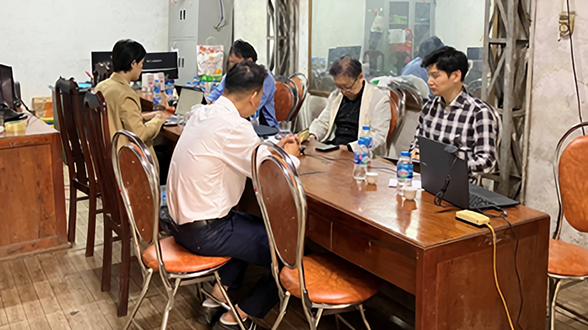
・Related human rights issues
Fair wages, working hours, discriminatory practices, occupational health and safety, freedom of association and the right to collective bargaining, women's rights, right to privacy, and access to remediation
・Affected rights holders
Employees of foreign Group companies
・Actions taken to prevent/mitigate negative impact on human rights
In response to the findings revealed in this survey, we plan to have discussions with Morinaga Nutritional Foods Vietnam Joint Stock Company and implement measures to prevent and mitigate negative impact.
*We had this impact assessment conducted by the Caux Round Table (hereinafter referred to as CRT), human rights specialist, from the perspective of a third party. Members of Morinaga Milk's Human Resource Department and Sustainability Promotion Department also participated as observers.
Dissemination of Our Human Rights Policy
- Education for Group Employees
In FY2021, we provided training related to the Morinaga Milk Group Human Rights Policy for 8,188 employees at Group companies in Japan and conducted activities for policy dissemination.* This training is aimed at people who work in the same workplace, including employees of domestic Group companies, dispatched employees, contracted employees, part-time workers, and employees of partner companies.
- Education for Recruiters
Morinaga Milk provides training to recruiters to ensure fair recruitment selection. In accordance with the Ministry of Health, Labour and Welfare’s basic principle for fair recruitment selection, we prohibit recruiters from obtaining knowledge about a candidate’s family or living conditions, respect the basic human rights of candidates, and recruit employees based on aptitude and ability. In addition, after checking over the basic principles for fair recruitment selection, recruiters try their best to ask candidates appropriate questions.
Forced Labor and Child Labor
As the Morinaga Milk Group uses green coffee beans, palm kernel oil, and other raw materials, there were concerns about forced labor and child labor in each of the raw materials production areas.
In light of this, the Morinaga Milk Group Human Rights Policy stipulates the prohibition of forced labor and child labor in all corporate activities and requires business partners to understand and comply with this rule. Morinaga procures coffee beans from farms certified by Rainforest Alliance* (www.rainforest-alliance.org), which is granted only to farms that comply with sustainable agricultural standards, with the aim of establishing a system to eliminate human rights abuses such as forced labor, child labor, and other causes of discrimination, and to ensure a living wage. We also procure RSPO-certified palm oil. To be RSPO-certified, producers are required to pay a living wage to all workers.
We strongly request our suppliers to procure raw materials that do not involve forced labor and child labor by informing them about our Procurement Policy, Supplier Guidelines, and Guidelines for Procurement of Individual Raw Materials.
Furthermore, we monitor risks such as risks related to human rights, the environment, and corporate governance through CSR procurement questionnaires.
* Morinaga Milk Industry sells Mt. RAINIER DEEP EXPRESSO, a product for which we use only green coffee beans from Daterra Coffee (Brazil), which is certified by the Rainforest Alliance.
Complaint Handling Mechanism
Aiming to respect human rights, including in the supply chain, the Morinaga Milk Group has joined Japan Center for Engagement and Remedy on Business and Human Rights (hereinafter referred to as JaCER), which has a complaints handling mechanism (a mechanism for accepting complaints from clients and implementing appropriate corrective measures) to remedy negative impacts that have occurred, in addition to striving to prevent and mitigate negative impacts on the company. JaCER provides a non-judicial grievance platform based on the UN Guiding Principles on Business and Human Rights, and provides expert support to member companies in handling complaints. The JaCER’s complaint handling platform can be used on an anonymous basis by all internal and external stakeholders who are or may be adversely affected from the perspective of human rights in their relationship with our Group. In the event that it is identified from the report related to the Group that an adverse human rights impact has occurred or the content of the report has contributed to an adverse human rights impact, we will seek to remedy the affected parties with expert advice from JaCER and other means of support. In FY2023, there were no reports of human rights violations from outside of the Company.
Basic Policy on Customer Harassment
< Introduction >
Under the corporate slogan “For Ever Brighter Smile,” the Morinaga Milk Group has set forth “contribute to healthy and enjoyable lifestyles to create a prosperous society” as its Corporate Philosophy The Group is committed to sincerely listening to customer feedback and providing products and services that make customers satisfied, earning their trust. However, among the customers using the Group's products and services, there are instances of socially inappropriate behavior (actions that deny the dignity of employees, violence, abusive language, and sexual harassment) that harm employee dignity and negatively impact the workplace.
To ensure mutual respect for the human rights of both customers and employees and to continue delivering safe and reliable products and services, we have established the "Morinaga Milk Group Basic Policy on Customer Harassment.”
< Definition of Customer Harassment >
Among customer behaviors and demands, actions that lack legitimacy or are considered socially inappropriate in method or manner can negatively affect the working environment of employees in the Group.
< Examples of Prohibited Conduct >
- Physical attacks (assault, injury)
- Psychological attacks (threats, intimidation, defamation, insults, abusive language)
- Coercive behavior
- Demand for kneeling to serve as an apology
- Continuous or persistent inappropriate behavior
- Restrictive actions (refusal to leave, occupying space, confinement)
- Discriminatory or sexual remarks and actions
- Attacks or demands directed at individual employees of the Morinaga Milk Group
- Defamation on social media or the Internet
- Acts that violate one’s privacy
The above definitions and examples of conduct are based on the “Corporate Manual on Customer Harassment Prevention” published by the Ministry of Health, Labor and Welfare. The list of behaviors are examples for reference. Forms of customer harassment are not limited to those listed.
Please click here to view the “Corporate Manual on Customer Harassment Prevention” published by the Ministry of Health, Labor and Welfare.
< Response to Employees >
We clarify our corporate stance on customer harassment through this policy and make employees within our Group more aware of the issue
We establish methods and procedures for handling customer harassment
We have provided a consultation and reporting system for employees within our Group
We are providing education and training on customer harassment for employees within our Group
< Response to Customer Harassment Incidents >
If we determine that an act constitutes customer harassment, we may refuse to provide products, services, or customer support.
In cases deemed malicious or criminal, we will consult with the police or legal professionals and take strict action, including legal measures.
The vast majority of our customers do not engage in the behaviors listed above and continue to use our Group's products and services without issue. However, if any act of customer harassment does occur, we will respond in accordance with this policy. We appreciate your understanding and cooperation.
Est : April 2025
Yohichi Ohnuki
President and Representative Director
Morinaga Milk Industry Co., Ltd.
Diversity, equity & inclusion
The Morinaga Milk Group believes it is important to not only recognize diversity, but also for employees of differing backgrounds to fully realize their individuality, potential, and abilities and to continue creating enterprise value. Morinaga Milk has published its Diversity, Equity, and Inclusion Declaration and implements a variety of company-wide measures in this regard.
Morinaga Milk Diversity, Equity, and Inclusion Declaration
Management and employees will:
- Respect the diversity of employees and work to create a workplace in which all employees can maximize their potential.
- Support employee “smiles” and “vibrancy” both at and away from work.
- Continue to express Morinaga Milk’s characteristic values to society through our employees’ smiles and vibrant work ethic.
Promotion of diversity, equity & inclusion
Morinaga Milk has held briefings at business sites nationwide to ensure that all employees properly understand and implement diversity and inclusion. Since FY 2017, Morinaga Milk has held an annual diversity forum together with other food product companies at least once a year, and in FY 2023, in addition to a lecture on the theme of "Why Does the Company Need Diversity? What Can We Do about This?,” we held a career seminar for female employees and a seminar about LGBTQ.
Co-ALIVE, Joint Project by Food Product Companies
Support for Female Workers
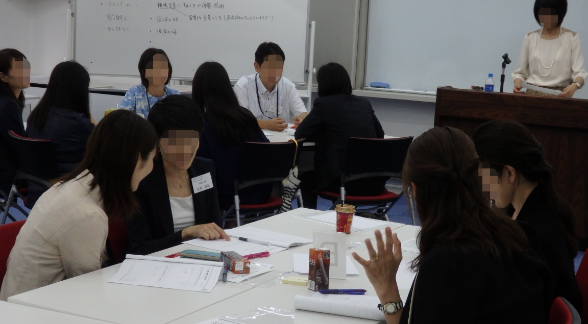
LGBTQ Help Line

Childcare Support System
Employees burdened with the dual demands of work and child-raising are able to actively engage in their work in various departments with support from the short-time work system, time-difference work system, etc.Morinaga Milk has had a paternity leave system since FY 2015 to raise awareness about the participation of male workers in child raising.In addition, for childcare leave at the time of birth (Papa Childcare Leave After Childbirth), which began in FY 2022, we introduced a system that allows employees to take leave with 100% salary and bonuses, exceeding national standards.We regard the period of childcare leave as a valuable period for “raising a precious child and becoming a parent,” and we have given the period of childcare leave the special name “Hagukumi period.”In April 2022, Morinaga Milk established the Hagukumi Gift Money program which subsidizes a portion of the cost of childcare as a gift at birth or upon entering elementary, junior high or high school, and distribute our product "Baby's Bifidus" to employees who have given birth to children.By increasing the number of employees taking childcare leave regardless of gender, it is an opportunity to review work efficiency and individualization, and we are creating an environment where everyone can take a break and work comfortably regardless of the reason.In recognition of these actions, we were certified as a business that supports parenting at a high level and received the Kurumin certification mark from the Ministry of Health, Labour and Welfare.
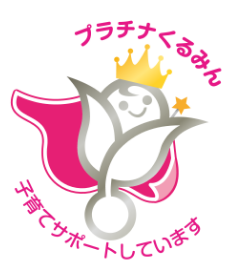
Family Care Support System
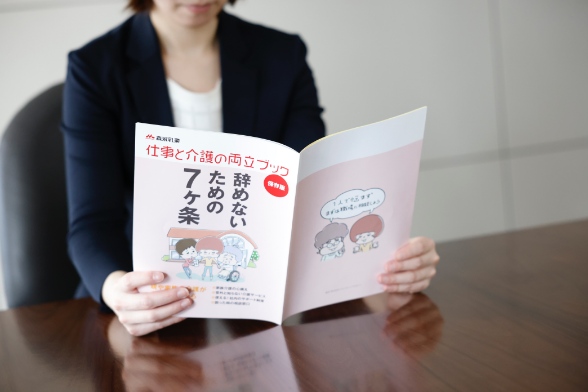
Employment of People with Disabilities
Morinaga Milk employs people with diverse backgrounds, from new graduates to experienced staff. Employees with disabilities are placed in positions where they can demonstrate their individual abilities. In FY2021, there were 167 employees with disabilities working at our domestic consolidated subsidiaries.Global Employees
The Morinaga Milk Group is planning to increase its overseas sales ratio to 15% under the Morinaga Milk Group 10-year Vision.
In overseas business, it is important to understand local conditions and backgrounds to promote business expansion.
We are actively hiring talented local human resources who possess such knowledge.
Career-based Recruitment and a System for Rehiring Former Employees
We have introduced Career-based Recruitment and a system for a rehiring former employees as systems for hiring human resources with diverse experience.
Encouragement of flexible and diverse working styles
Work-life balance/Promotion of flexible working styles
Morinaga Milk has introduced programs including No Overtime Day System, My Holiday System, and Interval System to maintain and improve employees' mental and physical health. The latter program, introduced at all of our business sites ahead of a legislative mandate in FY 2014, secures more rest time for employees by ensuring a certain amount of off-time from the end of work, including overtime work, to the start of work on the next day.
We further introduced our Teleworking/Satellite Work System, Time-difference Work System, and Flextime System as programs to support flexible working styles. Employees can use the Teleworking/Satellite Work System, introduced in FY 2017, to balance work and personal life or to improve work productivity by effectively utilizing time resources, regardless of reason such as childcare or family care. In FY 2021, we set up a satellite space at the Saitama Branch, for use by Tokyo business site workers who live near the Branch.
Furthermore, the Human Resources Department members regularly participate in seminars and workshops on work styles and labor standards to gain knowledge and examine more flexible work styles (in FY 2022, they participated in workshops including Balancing Medical Treatment and Work, Interval System, Resilience, and Revision of Postnatal and Maternity Leave System for Parents).
Reviewing work styles in this way allows all employees, who possess diverse backgrounds, to fully demonstrate their abilities in the workplace.
By rethinking working styles in this way, we seek to ensure that employees of diverse backgrounds can fully demonstrate their abilities.
Initiatives for Complying with Labor Laws and Regulations
Reducing long working hours
Morinaga Milk Industry complies with laws and regulations regarding employee working hours, reports and manages working hours appropriately, and works to reduce long working hours by setting “no overtime days” and improving work efficiency at each workplace.
In addition, we have established stricter standards for overtime work than the upper limits stipulated in relevant laws and regulations.
Wages
In the Morinaga Milk Group Human Rights Policy, we declare support for international norms of conduct such as the ILO Declaration on Fundamental Principles and Rights at Work and various conventions on workers' rights, including wages and working hours, and comply with the minimum wage stipulated by the laws of each country.
In addition, a uniform remuneration system is applied that ensures the same remuneration for both men and women who are at the same rank.
Fair and Equitable Employment
Morinaga Milk allows fixed-term contract employees to enter into an open-end employment agreement after gaining a certain amount of experience. We are working to clarify scopes of responsibility and expected roles in employee classifications, by means such as introducing a system of promotion to regular employees without a fixed period of employment, letting diverse employees play active roles. We further established an arrangement for rehiring former employees in response to requests from persons wanting to once again demonstrate their abilities at Morinaga Milk, letting them make effective use of experience and skills built up during their tenure and experience gained at other companies.
Management-Labor Dialogue
Morinaga Milk Industry has adopted a union shop system and organized the All Morinaga Labor Union as a forum for dialogue between labor and management. One-hundred percent of all full-time employees are members of the All Morinaga Labor Union, excluding managers and other types employees specified in the labor agreement.
In order for the company and the union to have mutual understanding and cooperation, the labor agreement requires holding management meetings, including joint management meetings attended by both management and union representatives (twice per year) and business site management meetings with union branch representatives. Occupational health and safety councils and management-labor councils are also held for safety measures and labor hour measures (twice per year for each). Discussions also cover wage raises and bonuses, improvement of other working conditions, etc. Finally, before revisions, etc. are made to internal regulations, a proposal is provided for discussion to the All Morinaga Labor Union. These efforts are part of maintaining close communications with the union.
Implementing health management
In order to Practice our corporate philosophy "Contribute to healthy and enjoyable lifestyles through offering unique products derived from advanced milk technology," we believe that it is of utmost importance for the employees of the Morinaga Milk Group to be healthy themselves.
By promoting health and productivity management, we will maintain and improve the health of our employees and create an environment in which each employee can work energetically, thereby increasing the value that the Group provides to society.

Management System
The Morinaga Milk Group has established the Well-being Subcommittee within the Sustainability Committee to monitor health management promotion.
The Morinaga Milk Industry’s Board of Directors receives regular reports on the Wellbeing Subcommittee’s activities and oversees the Sustainability Committee's activity processes and the effectiveness of its measures.
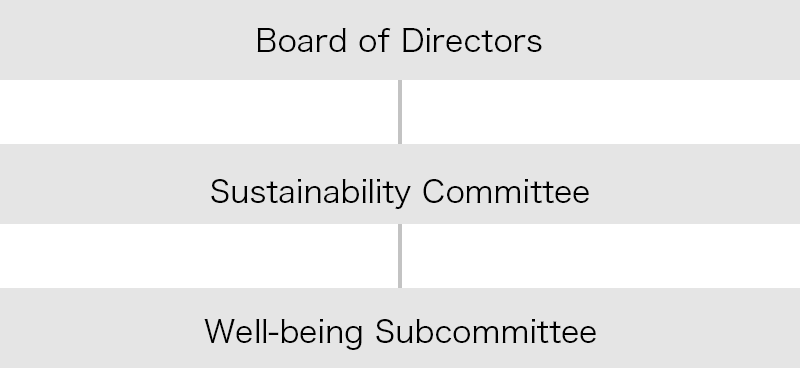
Initiatives and Goals
In promoting health and productivity management, the Morinaga Milk Group has created a Health Management Strategy Map, identified health issues, and then implemented initiatives to resolve them. We have set goals for improving lifestyle habits, making effective use of health examinations, improving health-related knowledge, and improving the organization and workplace environment as major themes for solving these problems.
We aim to be a Group where employees can be healthyemployees can be healthy and active by raising their health awareness and changing their behavior.
Health Management Strategy Map
| Direction for Solving Management Issues | Initiatives | FY2025 Target | |
|---|---|---|---|
| Improvement of lifestyle habits | Health questionnaires | Percentage of members who are aware of proper eating habits | 80% or higher |
| Percentage of members who exercise*1 | 50% or higher | ||
| Percentage of members that sleep properly | 50% or higher | ||
| Percentage of members with poor drinking habits*2 | Less than 5% | ||
| Percentage of people at risk of high blood pressure age 40 or above | Less than 1% | ||
| Percentage of people at risk of blood sugar issues age 40 or above | Less than 1% | ||
| Percentage of people 40 years of age or older with poor management of diabetes | Less than 1% | ||
| Rate of people of normal weight 40 years of age or older | 70% or higher | ||
| Habit activities, athletic events, etc. | Habit*3 participation rate | 80% or higher | |
| Free dental check-ups | Percentage of members who had dental check-ups | 70% or higher | |
| Support for smoking cessation (smoking cessation week and subsidy for medical expenses) | Percentage of smokers | Less than 10% | |
| Effective utilization of health check-ups | Percentage of employees taking regular medical checkups | Percentage of employees taking regular medical checkups | 100.0% |
| Recommendations for specific health guidance | Specific health guidance utilization rate | 50% or higher | |
| Follow-ups with persons at risk of a medical condition | Percentage of follow-ups completed with persons at risk of a medical condition | 100.0% | |
| Efforts for early detection of cancer | Full medical checkup rate | 70% or higher | |
| Productivity improvement | Absenteeism | Average number of days of absence and leave of absence per employee per year*4 | No more than 1.5 days |
| Presenteeism | A state in which the person is present at work but performance is reduced due to issues related to unhealthy mind or body (performance loss rate)*5 | 15% or less | |
| Status of employees on leave due to injury or illness | Percentage of employees taking a leave of absence | Less than 1% | |
| Employee engagement | Employee engagement ratings | A | |
| Improvement of health-related knowledge | Health seminar | Seminar participants (per year) | 1,600 or highter |
| Line care training*6 | Training coverage for targets | 50% or higher | |
| Level of satisfaction with each measure | Self-care training | 80% or higher | |
| Line care training | 80% or higher | ||
| Improving the environment of the organization and workplace | Health management of members who work long hours (including working hours management) | Number of long working hours | Less than 180 |
| Stress checks | Stress check completion rate | 90% or higher | |
| Overall health risk score*7 | Less than 80 | ||
| Rate of members with high stress | Less than 10% | ||
| Establishment of an external consultation desk for mental health | Number of users of the consultation desk per year | 100 or higher | |
*1 Light exercise twice a week for about 30 minutes each time
*2 More than three 180ml servings more than three times a week
*3 A special name for a lifestyle improvement and health promotion campaign sponsored by the Morinaga Health Insurance Society
*4 Total number of days off from work due to personal injury / (average number of employees at the beginning and end of the fiscal year)
*5 SPQ: Single-Item Presenteeism Question created by the University of Tokyo
*6 Training for managers to learn how to care for the mental health of their subordinates
*7 An index indicating the risk of health problems arising from the workplace environment (national average is 100 (the lower the number, the better the condition))
Key Health Management Measures
Efforts to Prevent the Onset of Lifestyle-related Diseases
- Various Types of Support
The Morinaga Milk Health Insurance Association subsidizes medical expenses for complete health exams for employees aged 30 or older. A free mail-based screening for cervical cancer for female employees in their twenties or older is also in place since the disease can affect young women as well. From the perspective of cancer prevention, Morinaga Milk provides subsidies for complete health checkups for employees aged 50 and above and subsidies for gynecological cancer screening. In FY 2020, an oncologist was invited for an inhouse lecture, "Thinking about Women’s Cancer." -
Health checkup Data Coordination and Follow-ups
Industrial health units (industrial physicians, public health nurses, nurses) and persons in charge of health management at each business site allows enhanced management of high risk persons, advocating for follow-up exams, and providing health guidance. Moreover, given the effects of oral health on overall health, we are also focusing on expanding our program of free dental checkups. Additionally, we are implementing an initiative to improve lifestyle habits using Morinaga Milk’s own supplement products for employees who are receiving specified health guidance.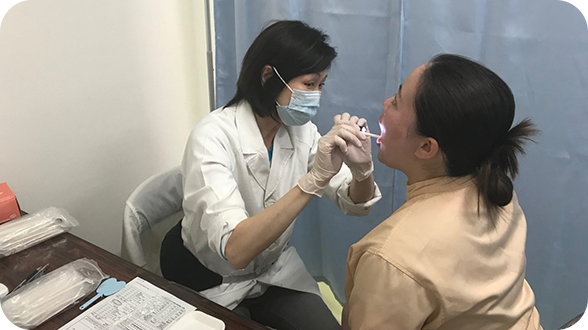
Free Dental Check-ups
Efforts to Prevent and Mitigate Mental Disorders
Mental health training is conducted by external EAP* institutions at Morinaga Milk and online training for management-level employees is also conducted.
Following stress checks, we carry out organizational diagnoses for all business sites, with individual follow-ups conducted by counselors as necessary.
In addition, we have partnered with an outside free mental care hotline to create an environment where people, including family members, can feel free to consult with us at any time.
Initiatives Related to Women's Health
A woman’s hormonal balance changes depending on life stages and has a significant impact on whether they will develop physical/mental disorders and diseases specific to women.
Therefore, we have set up a consultation desk for women's health where female employees can receive consultations on issues specific to women via phone/e-mail.
Consultations are provided by public health nurses. Not only women but also supervisors who have female subordinates can consult with the nurses about their physical conditions. The information shared during consultations will be kept strictly confidential.
In FY 2023, we distributed a video titled “Health Care for Working Women” explaining our efforts to create a workplace where everyone can work healthily and vigorously by supporting women's health.
Women's Health Care Support System (Morinaga Milk Industry only)
- Menstrual leave (one day of a month can be taken with pay and can be used in half-day and hourly increments)
- Free mail-based cervical cancer screening
- Subsidy for full medical checkup
- Subsidies for breast and cervical cancer screenings
- Accumulated annual leave is available for infertility treatment
- Various systems related to pregnancy other than leave for childbirth/childcare (pregnancy leave, leave for hospital visit, short-time working hours, etc.)
Policy to Support System to Balance Ongoing Medical Treatment and Work
In order to help employees reconcile work with their medical treatment, Morinaga Milk has implemented the time-difference work system, short-time work system (working hours reduced by a maximum of 2 hours), and reduced working days system (4 days a week), so that employees requiring long-term medical treatment will feel confident to remain in their jobs. Also, the following programs have been implemented in support of employees returning to work from leave.
- In collaboration with an external organization, provide support for stability when an employee returns to work following a period away for mental care reasons
- Establish a standardized system of "Return Support Program" which includes reduced ease-in working hours
- Implement regular interviews with industrial physicians (generally for 6 months) upon return to work
We certified as a Health & Productivity Management Outstanding Organization
Since FY 2020, Morinaga Milk Industry has been certified as a Health & Productivity Management Outstanding Organization (large enterprise category) administered and Yokohama Morinaga Milk Industry has been certified asa a Health & Productivity Management Outstanding Organization (small and medium-sized businesses) since FY 2023 by the Ministry of Economy, Trade and Industry (METI) of Japan and the Nippon Kenko Kaigi*.
* An organization organized by the private sector with the full support of the government to carry out effective activities to extend the healthy life expectancy of each citizen and provide appropriate medical care in Japan, a country where the birthrate is declining and the population is aging rapidly.
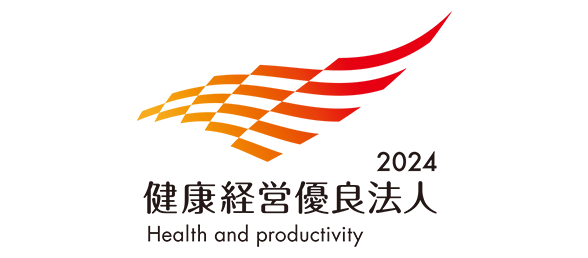
Human resource development
Throughout its history of more than 100 years, Morinaga Milk has fostered a positive corporate culture centered on a commitment to quality for our customers. Toward the next 100 years to come, we will take steps with our employees toward the future to evoke smiles from customers, colleagues, and ourselves, while valuing the achievements made in the past.
Regarding Human Resources as Capital and Human Resource Investment
In order to continue to be a business that customers choose, we believe that it is necessary to increase corporate value by simultaneously solving social issues and improving profitability.To this end, we must continue to be an organization that brings together the “knowledge” of each and every employee and creates unique value with a spirit that takes on challenges.The Group considers human resources, the source of these resources, to be important capital, and aims to create new value and achieve sustainable growth through further investment in our human capital.
Our goal is to create "a group of highly specialized, diverse, and energetic human resources"
For us to continue to be a business that creates value chosen by customers, we believe that it is necessary for each and every employee to keep on learning and create an organizational culture in which diverse opinions are actively discussed. As a company that provides health value to society, we aim to contribute to the healthy and fulfilling lives of our employees and to form a highly specialized and diverse group of energetic human resources.
An Approach Toward Creating an Ideal Group of Human Resources
To realize the formation of the human resources group that we are aiming at, it is important to approach that from both personnel and organizational standpoints. In human development, we believe that it is necessary to achieve a good balance between two approaches, one focusing on "individual autonomy" and "exercising professional capabilities,” and the other one focusing on "combining diverse values" and "creating a climate that celebrates challenges." Instilling a culture of developing human resources at various workplaces will encourage employees to make their own efforts for growth, which will result in an ongoing cycle of nurturing human resources. This is Morinaga Milk’s ideal way of developing human resources, and we are promoting a variety of human resource development programs based on this concept.
・Individual autonomy for human resource development
As part of these efforts, we are enhancing initiatives aimed at supporting employees’ career self-reliance. We believe that increasing employees’ level of career self-reliance will lead to their greater employee performance and job satisfaction. Since FY 2023, we have also been running Career Development Training which is designed to help employees to recognize their Will, Can, and Must based on the individual experiences they have built up so as to take actions autonomously toward their future vision. To encourage individual employees to grow in response to changes in their circumstances, we regularly release information on career self-reliance and e-learning programs to continue providing greater learning opportunities. At the same time, to support supervisors, we are creating an environment to promote career self-reliance by making various efforts, such as by sharing information on practical examples of incorporating the concept of career self-reliance into the development of subordinates, as well as by increasing the number of departments for internal transfers under the internal job posting system.
・Exercising professional capabilities for human resource development
Morinaga Milk is focusing on developing and growing its global business with the aim of becoming a global company that is a unique presence.
Increasing the number of global human resources and training them is considered vital. To secure sufficient numbers of employees capable of playing a role on the international stage, the requirements for such people has been clearly defined as we develop a pooling system for global human resources.
Appropriate training is planned for candidates selected for each level and role to create a comprehensive global human resources training program.
The Morinaga Milk College is also an internal educational institution in the Manufacturing Department tasked with transfer of technology and skills and with maintenance and improvement of quality technology, toward which it offers diverse employee education to train various specialists with the view to maintaining and improving quality.
・Combining diverse values for organizational development
The Morinaga Milk Group believes it is important for creating ongoing corporate value to not only recognize diversity, but also for employees of differing backgrounds to fully realize their individuality, potential, and abilities. To this end, a range of initiatives related to diversity and inclusion are organized for combining diverse values.
See Topics "Diversity & Inclusion" for more details.
・Creating a climate that celebrates challenges for organizational development
New Business Creation Program: Mori "NEW"
In FY 2022, we launched Mori “NEW”, a new business creation program based on suggestions from employees.
In this program, employees do not only present their own ideas. With a view to commercialization, they work to materialize and refine their ideas with advice and support from outside the Company, aiming for adoption of their ideas.
We have established a system that enables us to work toward the commercialization of ideas that have been adopted, with a view to supporting and collaborating with relevant departments within the Company and collaborating with external parties.
Through this program, we hope to create a future where various initiatives are created within the Morinaga Milk Group in a cohesive manner.
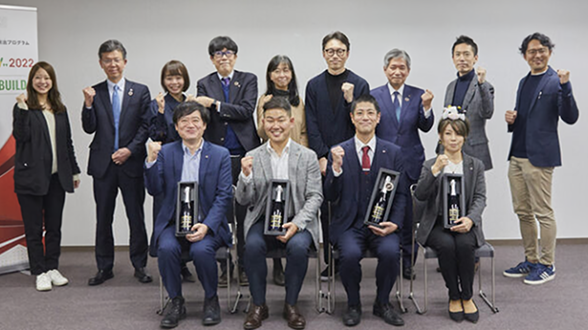
Internal Award System: Morinaga Milk Awards (MMA)
The Morinaga Milk Industry Group has introduced the Morinaga Milk Awards (MMA), an internal award system with the aim of becoming a company that is always looking to take on challenges.
MMA features multiple award categories, including the President's Award, the Trial and Error Award, and the Sustainability Award, and presentations of results, as well as awards for actions and processes to support employees pushing boundaries. This helps to support employees that take on challenges.
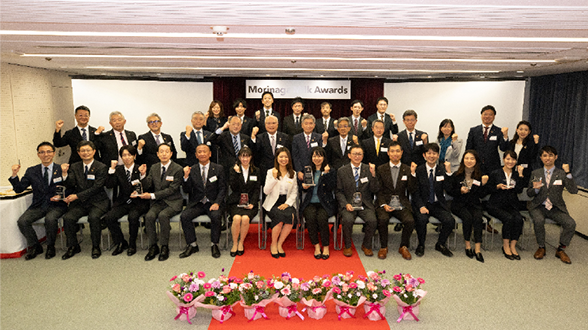
Initiatives for Evaluating Human Resources
The Morinaga Milk Group has an evaluation system for evaluating the contribution of employees on a semi-annual basis in light of the roles defined for each grade.
We support the autonomy of employees by setting goals at the beginning of the fiscal year, providing advice and conducting follow-up during the period, and providing feedback on the results.
In addition, by holding human resource development meetings which address the development policies and approaches of individual employees involving not only direct supervisors, but also the entire organization, and holding evaluation meetings for each organization where evaluators gather to discuss subordinate evaluations, we are working to foster a culture that nurtures people and realize highly convincing human resource evaluations.
Related links
Training System
Initiatives for Improving Engagement
We regard employee engagement as an important foundation in advancing initiatives aimed at becoming “a group of highly specialized, diverse, and energetic human resources.” With the aim of visualizing and sharing the status of employee empathy toward the Company, we conduct an engagement survey called the “Energy survey” once a year.
The Energy survey allows us to visualize not only the results of the Company as a whole but also the results of each workplace, allowing us to work together with each workplace to solve issues as a company.
At each workplace, we implement a PDCA cycle by conducting dialogs based on the results of Energy surveys, determining what needs to be improved, and establishing an action plan.
There are 11 grades possible for the Energy survey, from DD to AAA. The Morinaga Milk Group aims to achieve an “A” for the Energy survey in FY 2030.
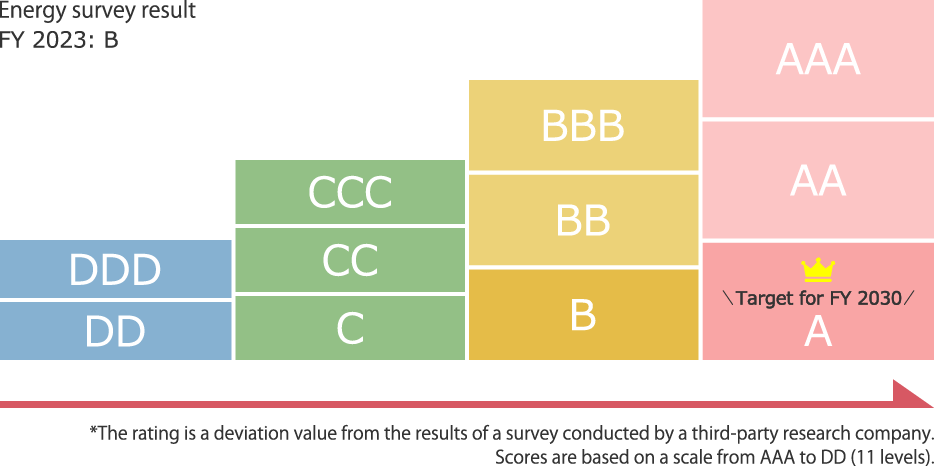
Initiatives for labor practices and occupational health and safety
The Morinaga Milk Group positions the health and safety of its employees as one of its important themes.
We have established a system to audit health and safety under the Morinaga Milk Group Health and Safety Basic Policy, with the President serving as the General Manager for Health and Safety for the entire Group and the General Manager of the Human Resources Department serving as the Chief Supervisor of Safety and Health for the Company.
Once a year, during National Occupational Health Week, we set targets for health and safety plans, and share and discuss measures for occupational accidents and the number of accidents with the Health and Safety Committee at each business site. In addition, the Health Committee, organized by the Human Resource Department, the labor union, and industrial physicians, meets monthly to check working hour management for the entire group, hold education programs and seminars on health and safety, and share the results of stress checks among other measures to manage employee health and safety.
Risk Assessment of Labor Practices and Occupational Health and Safety
When launching a new business, we conduct a risk assessment of labor issues to confirm compliance with appropriate labor practices.
Specifically, when developing a new business overseas, we establish a project management system, create a checklist of the state of compliance with laws and regulations in the country, and have the Global Business Department and Human Resource Department confirm its accuracy. When issues are discovered, we notify the relevant party so that they will correct the issues as soon as possible, and monitor the situation until improvements are confirmed.
In our existing businesses, we not only comply with laws and regulations but also assess the risk of overwork and take corrective measures for the purpose of promoting employee health and safety.
We are making efforts to optimize working hours by managing monthly and annual working hours using an attendance management system, ascertaining actual conditions through an Overtime Questionnaire, and requiring employees who are working long hours to meet with an industrial physician.
Labor-management meetings are held between Morinaga Milk Industry and the labor union once every six months (twice a year) to discuss working hours and safety for the Morinaga Milk Industry or the entire Group. Labor and management engage in discussions to manage employee health and safety.
In addition, each business site holds a Health Committee meeting every month to promote initiatives for the workplace environment, hold seminars, and share the results of stress checks with regard to health and hygiene, and confirm the effect of reducing risks related to employee safety and hygiene. This will lead to further strengthening of our initiatives.
Risk Assessment at Production Sites
・Conducting health and safety audits
The Morinaga Milk Group conducts semi-annual internal audits of documents and manufacturing sites at each Manufacturing Department business site using a health and safety audit checklist (166 items in total) to prevent industrial accidents, comply with laws and regulations, and improve the level of health and safety activities. In addition, this audit is conducted at all business sites at least once every three years by the Health and Safety Officer from the head office. In FY 2023, we conducted health and safety audits at 11 business sites.
For auditors that conduct internal health and safety audits at each business site, we have established an assessor system within the Group. Training for auditors is held under the leadership of the head office to improve their knowledge level and to align the items that should be noted in audits and evaluation standards.
・Ensuring the safety of new equipment
The Company conducts equipment safety inspections before the operation of a new plant, when new equipment is introduced, and when building structures or manufacturing processes are significantly changed. We conduct preliminary inspections focusing on measures that have been taken based on lessons learned from past disasters and compliance with laws and regulations to confirm that safe operations can be started.
Occupational Health and Safety Education
Health and safety education for employees
1. Safety training using hazard simulators
A set of three machines that allow employees to experience being caught in or entangled in machinery, being sprayed with compressed air, receiving an electric shock, and other hazards are loaned out sequentially to business sites of Manufacturing Departments for use in safety training by experiencing the hazards (In FY 2023, this training was provided at 11 business sites of Manufacturing Departments).
2. The head office safety department developed its own e-learning program, which was delivered four times in FY 2023, with a total of approximately 14,000 people taking the course.
3. We are promoting the establishment of the KYT Basic 4-Round Method*, mainly at Manufacturing Department business sites. The KYT Basic 4-Round Method is expected to improve employees’ sensitivity to hazards and to bring about the practice of basic safety actions to prepare for hazards by making hazard predictions before work. With the aim of creating a system in business sites to educate employees on the KYT Basic 4-Round Method, we invite outside instructors to provide training to trainers (In FY 2023, the training was held ten times with 50 people selected from different business sites participating).
* A method of conducting hazard prediction training according to four steps
Health and Safety Promotion Activities
“Keep safe!” activities
The Morinaga Milk Group’s Manufacturing Department promotes “Keep safe!” activities.
“Keep safe!” activities refer to the mindset of giving priority to safety and health. This phrase is meant to be used in place of greetings in Japan such as “Good morning” and “Thanks for the hard work.” The underlying idea is to warmly encourage coworkers and others to start the day by putting safety first so as to be able to return home in the same condition as they arrived. It also serves as a reminder to not get injured and to not cause injury to others.
Occupational Health Week
Once a year during National Occupational Health Week, we set targets for health and safety plans, and share and discuss measures for occupational accidents and the number of accidents with the Health and Safety Committee at each business site.
Occupational Health and Safety Initiatives for Employees Assigned Overseas
We are committed to ensuring occupational health and safety during overseas assignments, such as by securing clean and safe serviced apartments and condominiums for individual employees or employees and their families prior to overseas assignments. Also, the Company has contracted an overseas medical assistance service prepared to make arrangements at local hospitals, provide medical consultation services, and provide medical transportation promptly in the event of an emergency. In addition, we have contracted with overseas security services to provide safety-related initiatives such as prompt provision of information on local incidents and accidents, provision of information such as crisis management seminars prior to assignment, and emergency evacuation support in emergencies.
Examples of recognized risks and opportunities
Risks
- Loss of trust due to lack of consideration or communication toward local communities
- Impacts on operations including suspension of operations due to opposition from local residents
Opportunities
- Earning of trust by strengthening regional partnerships through the uncovering and resolution of region-specific issues
- Creation of regional employment
Main actions
- Sharing of information on local community-related initiatives by business sites
- Provision of information and support to business sites
- Promotion of medium-term community activities linked to Priority Issues
- Enhancement and expansion of initiatives for regional cooperation agreements



Targets for FY 2030
(From FY 2021 to FY 2030) ※1
carrying out
community activities ※1
※1 Target of Morinagamilk group (including overseas offices)
Topics
Factory tour
Revitalization of communication with local communities through plant tours
Local communities are an important part for Morinaga Milk Group's corporate activities. We have developed a variety of programs aimed at meaningful communication with communities and the sustainable development of communities.
One such program is plant tours. Although plant tours have been suspended since 2020 due to the COVID-19 pandemic, in September 2023, the Tone Plant (Joso City, Ibaraki Prefecture) newly opened a visitor pathway, and in March 2024, the Kobe Plant (Kobe City, Hyogo Prefecture) was renewed and reopened its visitor pathway.
Our factory tours are well received by local residents, especially elementary school students, as they allow them to experience how our products are made from raw materials to delivery to customers, as well as the efforts of our workers to improve safety and health and the environment.
We will continue to strengthen these initiatives, communicate with local communities for the creation of a sustainable society, and support the growth of the next generation.
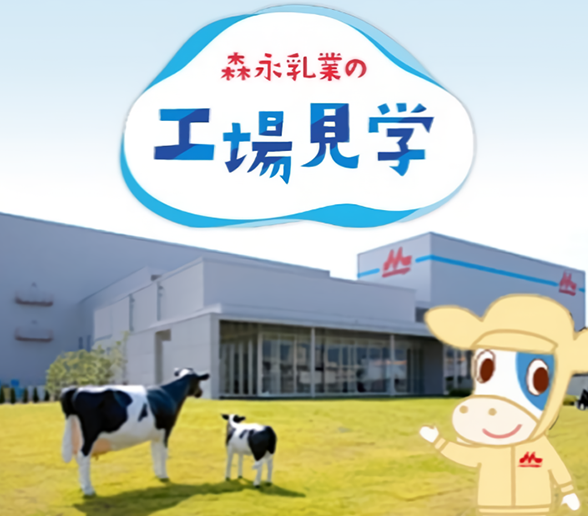
Regional partnership agreements
– Toward regional health promotion and revitalization in partnership with local governments –
The Morinaga Milk Group has concluded comprehensive Partnership Agreements with local governments to resolve social issues faced by local communities, aiming to coexist with local communities. Through our products and services, we are engaged in initiatives that contribute mainly to the health of local people, including extending healthy life expectancy.
In addition to comprehensive partnership agreements, we have concluded individual agreements on cleaning and cooperation in the event of a disaster at more than 15 locations throughout Japan and are striving to contribute to local communities.
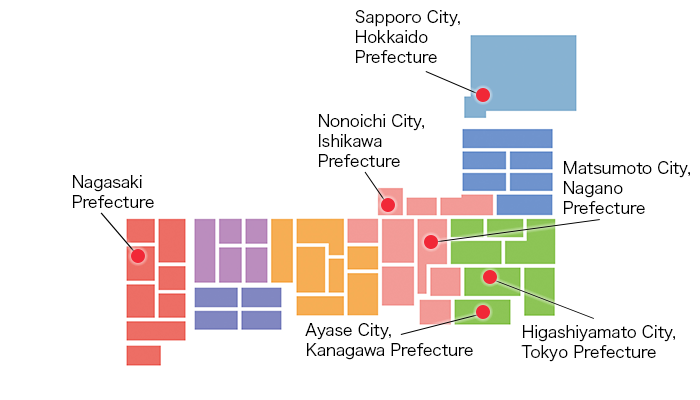
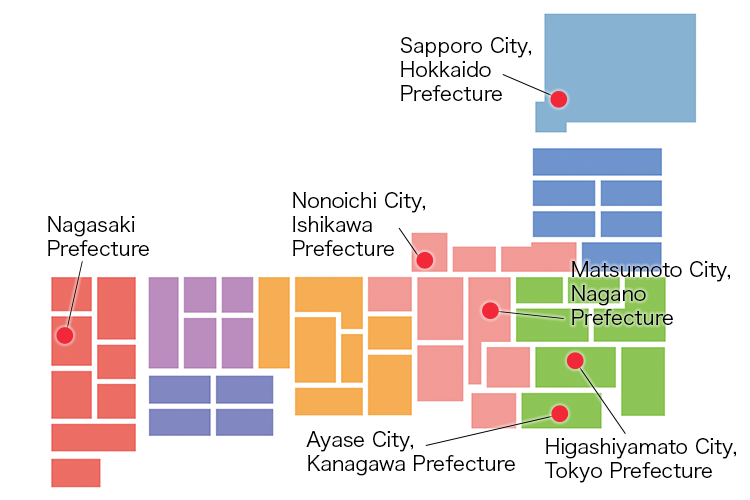
| No | Location | Detail | Month and Year When Agreement Was Entered |
|---|---|---|---|
| 1 | Okazaki City, Aichi Prefecture |
The Morinaga Milk Group concluded a comprehensive partnership agreement with this city to provide support for health promotion, dietary education child-raising through the products and services of the Morinaga Milk Group. | May 2024 |
| 2 | Joso City, Ibaraki Prefecture |
The Morinaga Milk Group concluded a comprehensive partnership agreement with this city to provide support for child-raising and citizens’ health promotion through the products and services of the Morinaga Milk Group. | February 2024 |
| 3 | Saitama City, Saitama Prefecture |
The Morinaga Milk Group concluded a comprehensive partnership agreement with this city to provide support for the safety and security of the region and people’s lives, disaster contingency planning, and health promotion through the products and services of the Morinaga Milk Group. | December 2023 |
| 4 | Ayase City, Kanagawa Prefecture |
The Morinaga Milk Group concluded a comprehensive partnership agreement with this city to extend healthy life expectancy and raise health awareness among children and the elderly through the products and services of the Morinaga Milk Group. | February 2023 |
| 5 | Sapporo City, Hokkaido Prefecture |
The Morinaga Milk Group concluded a comprehensive partnership agreement with this city to extend healthy life expectancy and raise health awareness among children and the elderly through the products and services of the Morinaga Milk Group. | December 2022 |
| 6 | Nonoichi City, Ishikawa Prefecture |
The Morinaga Milk Group concluded a comprehensive partnership agreement with this city to provide support for child-raising and the elderly, and to educate people about health information through the products and services of the Morinaga Milk Group. | August 2022 |
| 7 | Nagasaki Prefecture | The Morinaga Milk Group concluded comprehensive partnership agreements with Nagasaki Prefecture, the University of Nagasaki, Nagasaki Shimbunsha, and Goto City. A comprehensive partnership agreement was concluded to investigate and analyze the relationship between the current state of lifestyle habits and health conditions in Goto City through joint research, disseminate information on the results obtained, conduct cooking classes with the theme of health, and conduct dietary education activities. |
November 2021 |
| 8 | Matsumoto City, Nagano Prefecture |
A comprehensive partnership agreement was concluded to solve health issues through research, products, and services of the Morinaga Milk Group, and educate the public about health information using digital technology. | November 2021 |
| 9 | Higashiyamato City, Tokyo Prefecture |
The Morinaga Milk Group concluded a comprehensive partnership agreement with this city to provide support for child-raising and the elderly, and to educate people about health information through the products and services of the Morinaga Milk Group. | July 2021 |
Matsumoto, Nagano Prefecture: Comprehensive Partnership Agreement
– Contributing to health promotion and regional revitalization in Matsumoto through food –
Our Matsumoto Plant in the city of Matsumoto celebrated its 80th anniversary.
In 2013, we began joint research related to health promotion, the results of which are being used to communicate information of use in health promotion for Matsumoto residents. In October 2021, we further expanded the scope of the partnership and signed a comprehensive partnership agreement with aims that include the resolution of regional issues through the use of our products and services, and the promotion of regional industries. Through our research, products, and services, we will undertake these activities with a focus on resolving health issues and provision of health information education using digital technology.
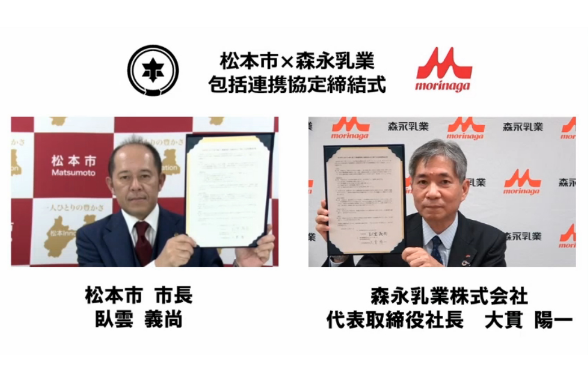
Higashiyamato, Tokyo: Comprehensive Partnership Agreement
– Supporting childrearing and contributing to support for senior residents in Higashiyamato –
In the past, we have signed agreements with the city on support for childrearing, cooperation with special events, and provision of relief supplies in the event of disaster. In July 2021, endorsing the idea of making greater efforts toward support for childrearing and senior residents, we signed a comprehensive partnership agreement.
We have begun childrearing support that includes distribution of samples of Hagukumi, a product manufactured at the Yamato Plant, to parents who have registered births.
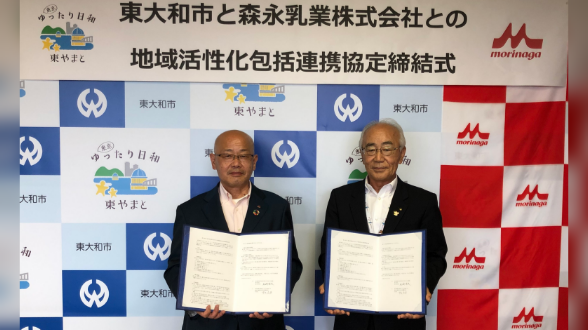
We are further strengthening ties with regions. We concluded an agreement on health promotion with the city of Kumamoto (Partnership Agreement on Health Promotion) in January 2021, and an agreement on joint research aimed at extending healthy lifespans with the city of Goto in Nagasaki Prefecture, University of Nagasaki, NAGASAKI SHIMBUNSHA, and Nagasaki Prefecture (Comprehensive Partnership Agreement in Nagasaki) in 2021.
From here on out, we will continue our efforts toward local community health promotion and revitalization through the activities, products, and services of Morinaga Milk Group.


